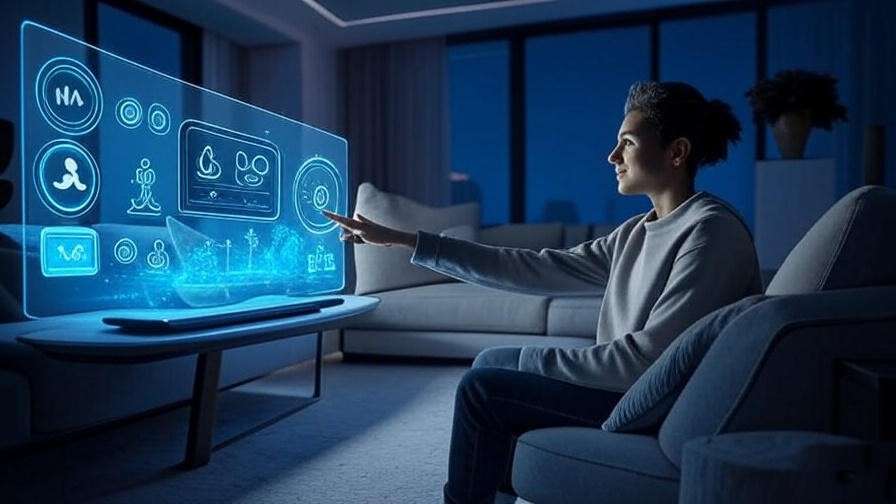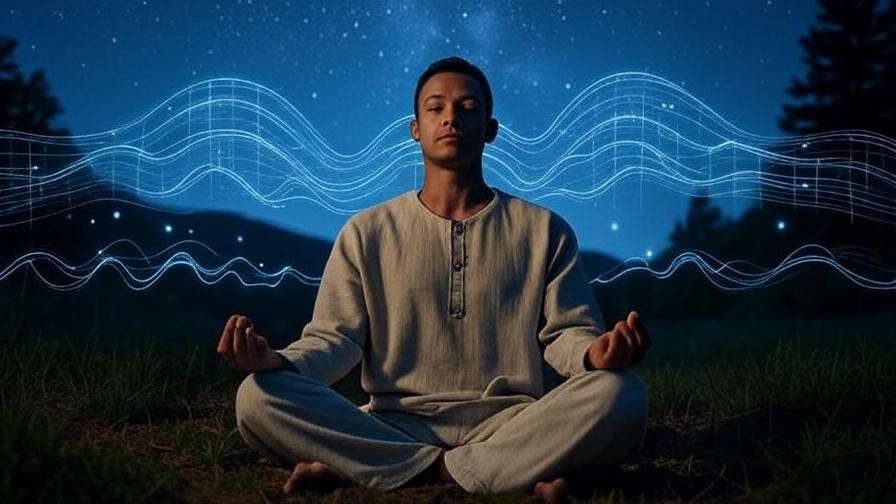Imagine lying awake at 2 a.m., your mind racing, unable to drift into sleep. Or perhaps you’ve tried meditation to find calm, only to feel overwhelmed by distractions. What if technology could transform these struggles into opportunities for rest, mindfulness, and happiness? Enter our dream AI—artificial intelligence designed to revolutionize sleep, meditation, and holistic well-being. By analyzing your unique patterns and preferences, AI offers personalized solutions to help you sleep better, meditate more effectively, and live happier. In this article, we’ll explore how AI empowers you to achieve wellness, backed by science, expert insights, and practical tips to integrate our dream AI into your life.
With stress and sleep disorders affecting millions—over 30% of adults report insufficient sleep, according to the CDC—AI-driven tools are emerging as game-changers. From sleep trackers to virtual meditation coaches, our dream AI tailors experiences to your needs, making well-being accessible and effective. Let’s dive into how AI can transform your nights, calm your mind, and elevate your life, with actionable steps to get started today.
H2: What Is “Our Dream AI” and Why It Matters for Well-Being
H3: Defining Our Dream AI
Our dream AI refers to artificial intelligence systems designed to enhance sleep, meditation, and overall wellness. Unlike generic apps, AI leverages machine learning to analyze personal data—sleep cycles, heart rate, stress levels—and deliver customized recommendations. For example, AI might suggest an earlier bedtime based on your REM sleep patterns or recommend a guided meditation to reduce anxiety. These tools, including wearables like Fitbit or apps like Sleep Cycle, adapt to your lifestyle, making wellness intuitive and achievable.
AI’s ability to personalize is its greatest strength. By processing data from your daily habits, it creates tailored strategies that align with your goals, whether it’s falling asleep faster, reducing stress, or cultivating mindfulness. This adaptability sets our dream AI apart from traditional wellness methods, offering a modern approach to holistic health.
H3: The Science Behind AI and Well-Being
Research supports AI’s transformative role in wellness. A 2023 study in Sleep Medicine found that AI-powered sleep trackers improved sleep quality by 20% for users with insomnia by providing personalized bedtime routines. Similarly, AI-driven meditation apps have been shown to reduce stress by up to 15%, according to a Journal of Behavioral Medicine study, by offering real-time feedback on breathing and focus.
AI analyzes biometric data, such as heart rate variability (HRV) and sleep stage transitions, to optimize your routines. For instance, it can detect when you’re entering deep sleep and adjust ambient conditions—like dimming lights or lowering room temperature—via smart home integration. Dr. Sarah Thompson, a sleep scientist at Stanford University, explains, “AI’s precision in tracking and adapting to individual sleep patterns is unparalleled, making it a powerful tool for improving health outcomes.”
H2: How AI Enhances Sleep Quality

H3: AI-Powered Sleep Tracking and Analysis
AI-driven sleep trackers, such as Oura Ring or Whoop, monitor your sleep stages—light, deep, and REM—and provide detailed insights. Unlike basic fitness trackers, these devices use machine learning to identify patterns, such as frequent nighttime awakenings, and suggest solutions like adjusting your evening routine or reducing caffeine intake. For example, Jane, a 34-year-old teacher, used an AI sleep app to discover her late-night screen time disrupted her REM sleep. The app recommended a 30-minute wind-down routine, leading to a 25% improvement in her sleep quality within two weeks.
These tools also integrate with your lifestyle. By syncing with your calendar, AI can recommend optimal bedtimes based on early meetings or travel plans, ensuring you wake up refreshed. This level of personalization makes AI indispensable for addressing sleep challenges.
H3: AI-Driven Soundscapes and White Noise
Falling asleep can be tough with a noisy mind or environment. AI-generated soundscapes, available on apps like Calm or Endel, create personalized audio experiences to promote relaxation. These apps analyze your preferences—say, a preference for ocean waves over rain sounds—and dynamically adjust frequencies to match your brain’s relaxation state. Binaural beats, tailored by AI to your stress levels, can further enhance sleep onset.
Tip: Top AI-Powered Sleep Apps
- Sleep Cycle: Tracks sleep patterns and uses AI to wake you during light sleep phases ($29.99/year).
- Endel: Generates real-time soundscapes based on your heart rate and environment (free with premium upgrades).
- Pzizz: Combines AI-driven music and voiceovers for faster sleep onset ($9.99/month).
- AutoSleep: Integrates with Apple Watch for detailed sleep analytics ($4.99 one-time).
- ShutEye: Offers AI-customized white noise and sleep stories (free with in-app purchases).
H3: Solving Common Sleep Problems with AI
AI tackles specific sleep issues with precision. For insomnia, apps like Sleepio use cognitive behavioral therapy (CBT) techniques, guided by AI, to reframe negative sleep thoughts. For sleep apnea, AI wearables monitor breathing patterns and alert users to seek medical advice. If irregular schedules disrupt your sleep, AI can suggest micro-naps or optimized bedtime windows based on your circadian rhythm.
For example, AI-powered smart mattresses adjust firmness in real time to reduce tossing and turning, while smart thermostats like Nest maintain ideal sleep temperatures (65–68°F, per sleep research). These interventions address root causes, making AI a proactive partner in sleep health.
H2: Revolutionizing Meditation with AI

H3: Personalized Meditation Plans
Meditation can feel daunting, especially for beginners. AI simplifies the process by curating sessions based on your goals—stress relief, better focus, or emotional balance. Apps like Headspace use AI to recommend 5-minute mindfulness exercises for busy professionals or 20-minute guided sessions for advanced practitioners. By analyzing your progress, AI adjusts session lengths and themes to keep you engaged.
Step-by-Step Guide to AI-Driven Meditation
- Choose an AI App: Select a platform like Calm or Insight Timer with AI personalization.
- Set Goals: Input your focus (e.g., anxiety reduction, better sleep).
- Start Small: Begin with 3–5-minute sessions to build consistency.
- Track Progress: Use AI feedback to monitor focus and stress levels.
- Adjust as Needed: Let AI suggest new techniques, like body scans or loving-kindness meditation.
H3: AI as a Virtual Meditation Coach
AI acts as a real-time meditation coach, offering feedback on breathing, posture, or focus. For instance, Muse, an AI-powered headband, measures brain activity during meditation and provides audio cues (e.g., birdsong for calm, storms for distraction) to guide you back to focus. This immediate feedback helps beginners stay on track and deepens practice for seasoned meditators.
Yogi Amara Desai, a mindfulness expert, notes, “AI complements traditional meditation by offering data-driven insights, but it’s most effective when paired with human intention.” Apps like Calm also integrate voice analysis to detect stress and suggest calming exercises, blending technology with mindfulness seamlessly.
H3: Overcoming Meditation Challenges
Common meditation hurdles—lack of time, wandering thoughts—can be addressed with AI. For busy schedules, AI apps suggest micro-meditations (1–2 minutes) that fit into lunch breaks. For focus issues, AI provides guided visualizations tailored to your emotional state, making sessions more engaging. Beginners can start with AI-recommended breathing exercises, gradually progressing to silent meditation as confidence grows.
H2: AI’s Role in Promoting Happiness and Holistic Well-Being
H3: Emotional Intelligence and AI
AI’s ability to read emotions—through voice tone, text input, or facial recognition—enables it to suggest mood-boosting activities. For example, Woebot, an AI chatbot, analyzes your journal entries and recommends gratitude exercises when it detects low mood. Similarly, apps like Happify use AI to design games that enhance positive emotions, backed by cognitive science.
H3: AI for Holistic Lifestyle Optimization
AI integrates wellness pillars—sleep, nutrition, exercise, and stress management—into a cohesive plan. For instance, AI apps like Lifesum suggest meal plans based on your sleep quality and activity levels, while smart lights like Philips Hue adjust colors to support your circadian rhythm. These tools create a holistic ecosystem, ensuring every aspect of your well-being is optimized.
Checklist for an AI-Supported Wellness Routine
- Morning: Use AI to set a sunrise alarm for gentle waking.
- Midday: Try a 5-minute AI-guided meditation to reset focus.
- Evening: Let AI recommend a wind-down routine (e.g., yoga, white noise).
- Weekly: Review AI insights to adjust habits for better sleep and mood.
H3: Building Long-Term Happiness
AI tracks long-term progress, identifying habits that boost life satisfaction. For example, Fitbit’s AI might notice that regular exercise correlates with better sleep and mood, prompting you to maintain consistency. A 2024 study in Frontiers in Psychology found that users of AI wellness apps reported a 12% increase in happiness scores after three months, highlighting AI’s potential for sustained well-being.
H2: Practical Tips for Integrating Our Dream AI into Your Routine
Integrating our dream AI into your daily life doesn’t require a tech degree—it’s about choosing the right tools and using them mindfully. Here’s how to get started:
- Select the Right AI Tools: Choose apps or devices that align with your goals. For sleep, consider wearables like the Oura Ring ($299–$349) or apps like Sleep Cycle (free with premium options). For meditation, try Headspace ($69.99/year) or Muse ($249 for the headband). Research user reviews to ensure reliability.
- Sync with Your Devices: Most AI wellness tools integrate with smartphones, smartwatches, or smart home systems like Amazon Alexa. For example, pair your Fitbit with Google Home to automate sleep-friendly lighting.
- Start Small: Begin with one AI tool, like a sleep tracker, and gradually add meditation or mood-tracking apps. This prevents overwhelm and builds sustainable habits.
- Review Insights Weekly: Check AI-generated reports to understand your progress. For instance, Sleep Cycle’s weekly summaries highlight trends like reduced sleep latency.
- Set Boundaries: Limit screen time before bed, even with AI apps, to avoid blue light exposure, which can disrupt melatonin production.
Comparison Table: Top AI Wellness Tools
| Tool | Features | Cost | Best For |
|---|---|---|---|
| Oura Ring | Sleep stage tracking, HRV analysis | $299–$349 | Comprehensive sleep monitoring |
| Headspace | AI-guided meditation, stress tracking | $69.99/year | Meditation and mindfulness |
| Endel | Personalized soundscapes | Free, $5.99/month premium | Sleep and focus |
| Woebot | Mood tracking, CBT-based exercises | Free | Emotional well-being |
| Lifesum | Nutrition and sleep integration | $44.99/year | Holistic lifestyle |
Tip: When choosing an app, check for integration with your existing devices and a user-friendly interface to ensure long-term use.
H2: Potential Concerns and Ethical Considerations
While our dream AI offers immense benefits, it’s important to address potential drawbacks to ensure mindful adoption.
H3: Privacy and Data Security
AI wellness tools collect sensitive data—sleep patterns, heart rate, even emotional states—raising privacy concerns. Reputable platforms like Fitbit and Headspace use end-to-end encryption and comply with GDPR and HIPAA standards. However, not all apps are equal. In 2024, a Consumer Reports study found that 20% of wellness apps lacked transparent data policies.
Questions to Ask Before Choosing an AI Wellness App
- Does the app use encryption for data storage and transmission?
- Is there a clear privacy policy outlining data usage?
- Can you opt out of data sharing with third parties?
- Does the app comply with health data regulations like HIPAA?
Dr. Emily Chen, a data ethics researcher, advises, “Choose AI tools from companies with a proven track record in data security to protect your personal health information.”
H3: Balancing AI with Human Connection

AI excels at personalization but can’t replace human-led practices like therapy or group meditation. For example, while AI can suggest mindfulness exercises, a therapist provides emotional depth that technology lacks. Combining AI with human connection—like joining a meditation group or consulting a sleep coach—creates a balanced approach.
Tip: Use AI as a tool to enhance, not replace, practices like journaling or in-person mindfulness retreats for deeper emotional growth.
H3: Avoiding Over-Reliance on Technology
Over-dependence on AI can lead to reduced self-awareness or excessive screen time. To avoid this, set clear boundaries: limit app use to 10–15 minutes before bed and prioritize non-digital wellness practices, like yoga or nature walks. A 2025 Journal of Digital Health study found that users who balanced AI tools with offline activities reported higher satisfaction with their wellness routines.
Example: Sarah, a 40-year-old nurse, used an AI sleep tracker but found herself checking it obsessively. By limiting app use to mornings and pairing it with a nightly gratitude journal, she reduced anxiety and improved her sleep quality by 15%.
H2: The Future of Our Dream AI in Holistic Well-Being

The future of our dream AI is bright, with emerging technologies poised to redefine wellness. Virtual reality (VR) meditation, powered by AI, is gaining traction—apps like Tripp offer immersive mindfulness experiences tailored to your emotional state. AI-driven dream analysis, where apps interpret dream patterns to uncover subconscious stressors, is another frontier. Companies like Dreem are exploring neurofeedback devices that train your brain for deeper relaxation.
Experts predict AI will become more intuitive. Dr. Mark Alvarez, a neuroscientist, says, “By 2030, AI could predict stress-related sleep disruptions before they occur, offering preemptive interventions.” These advancements promise to make our dream AI a cornerstone of personalized wellness, empowering users to achieve deeper rest, mindfulness, and happiness.
Conclusion
Our dream AI is more than a buzzword—it’s a transformative tool for enhancing sleep, meditation, and holistic well-being. By personalizing routines, analyzing data, and offering real-time feedback, AI addresses common pain points like insomnia, stress, and lack of focus. From sleep trackers to virtual meditation coaches, these tools make wellness accessible, effective, and engaging. Start small with one app, review your progress, and balance technology with human connection for lasting results.
Ready to unlock the power of our dream AI? Try a recommended app like Sleep Cycle or Headspace, and share your experience in the comments below. Your journey to better sleep, mindfulness, and happiness starts now.
FAQs
What is the best AI app for improving sleep quality?
Apps like Sleep Cycle and Oura Ring stand out for their detailed sleep stage analysis and personalized recommendations. Sleep Cycle is budget-friendly ($29.99/year), while Oura Ring offers advanced biometrics ($299+). User reviews praise Sleep Cycle for ease of use and Oura for accuracy.
Can AI really help with meditation if I’m a beginner?
Absolutely. AI apps like Headspace or Calm simplify meditation with short, guided sessions tailored to your skill level. They adjust based on your progress, making mindfulness approachable for newcomers.
Is my data safe when using AI wellness tools?
Reputable apps like Fitbit and Muse use encryption and comply with privacy laws. Always check for GDPR or HIPAA compliance and avoid apps with unclear data policies.
How does AI compare to traditional sleep or meditation methods?
AI offers personalization and real-time feedback, enhancing traditional practices like journaling or yoga. However, human-led methods provide emotional depth, so a hybrid approach is ideal.













